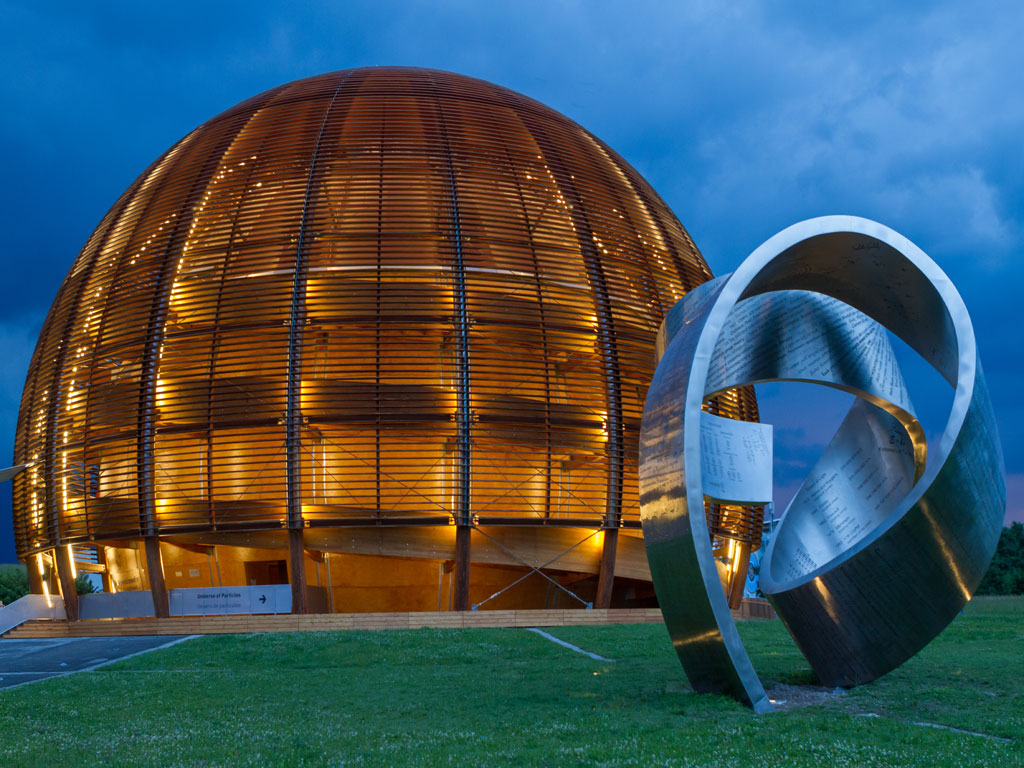Serbia becomes 23rd CERN member state
Source: eKapija
 Monday, 25.03.2019.
Monday, 25.03.2019.
 08:53
08:53
 Monday, 25.03.2019.
Monday, 25.03.2019.
 08:53
08:53
(Photo: Dominionart/ shutterstock.com)

Ana Brnabić, Prime Minister of Serbia, said that investing in scientific research was important for the development of Serbia's economy and that CERN was one of the most important scientific institutions today.
– I am immensely proud that Serbia has become a fully-fledged CERN Member State. This will bring new possibilities for our scientists and industry to work in cooperation with CERN and fellow CERN Member States – Brnabić said.
Ursula Bassler, President of the CERN Council, said that “Serbia has a longstanding relationship with CERN, with the continuous involvement of Serbian scientists in CERN’s major experiments”.
– I’m very happy to see that Serbia’s initiative to seek membership status of CERN has now converged and that we can welcome Serbia as a Member State – Bassler said.
Fabiola Gianotti, CERN Director-General, said that it was a great pleasure to welcome Serbia as the 23rd Member State.
– The Serbian scientific community has made strong contributions to CERN’s projects for many years. Membership will strengthen the longstanding relationship between CERN and Serbia, creating opportunities for increased collaboration in scientific research, training, education, innovation and knowledge-sharing – Gianotti said.
– As a CERN Member State, Serbia is poised to further the development of science and education as our scientists, researchers, institutes and industry will be able to participate on the world stage in important scientific and technological decision-making – said Mladen Šarčević, the Serbian Minister of Education, Science and Technological Development.
As the press release says, when Serbia was a part of Yugoslavia, which was one of the 12 founding Member States of CERN in 1954, Serbian physicists and engineers took part in some of CERN’s earliest projects, at the SC, PS and SPS facilities.
In the 1980s and 1990s, physicists from Serbia worked on the DELPHI experiment at CERN’s LEP collider. In 2001, CERN and Serbia concluded an International Cooperation Agreement, leading to Serbia’s participation in the ATLAS and CMS experiments at the Large Hadron Collider, in the Worldwide LHC Computing Grid, as well as in the ACE and NA61 experiments.
Serbia’s main involvement with CERN today is in the ATLAS and CMS experiments, in the ISOLDE facility, which carries out research ranging from nuclear physics to astrophysics, and on design studies for future particle colliders – FCC and CLIC – both of which are potentially new flagship projects at CERN.
As a CERN Member State, Serbia will have voting rights in the Council, CERN’s highest decision-making authority, and will contribute to the Organization’s budget. Membership will enhance the recruitment opportunities for Serbian nationals at CERN and for Serbian industry to bid for CERN contracts, the press release says.
Comments
Your comment
Most Important News
Full information is available only to commercial users-subscribers and it is necessary to log in.
Follow the news, tenders, grants, legal regulations and reports on our portal.
Registracija na eKapiji vam omogućava pristup potpunim informacijama i dnevnom biltenu
Naš dnevni ekonomski bilten će stizati na vašu mejl adresu krajem svakog radnog dana. Bilteni su personalizovani prema interesovanjima svakog korisnika zasebno,
uz konsultacije sa našim ekspertima.


 Izdanje Srbija
Izdanje Srbija Serbische Ausgabe
Serbische Ausgabe Izdanje BiH
Izdanje BiH Izdanje Crna Gora
Izdanje Crna Gora


 News
News









